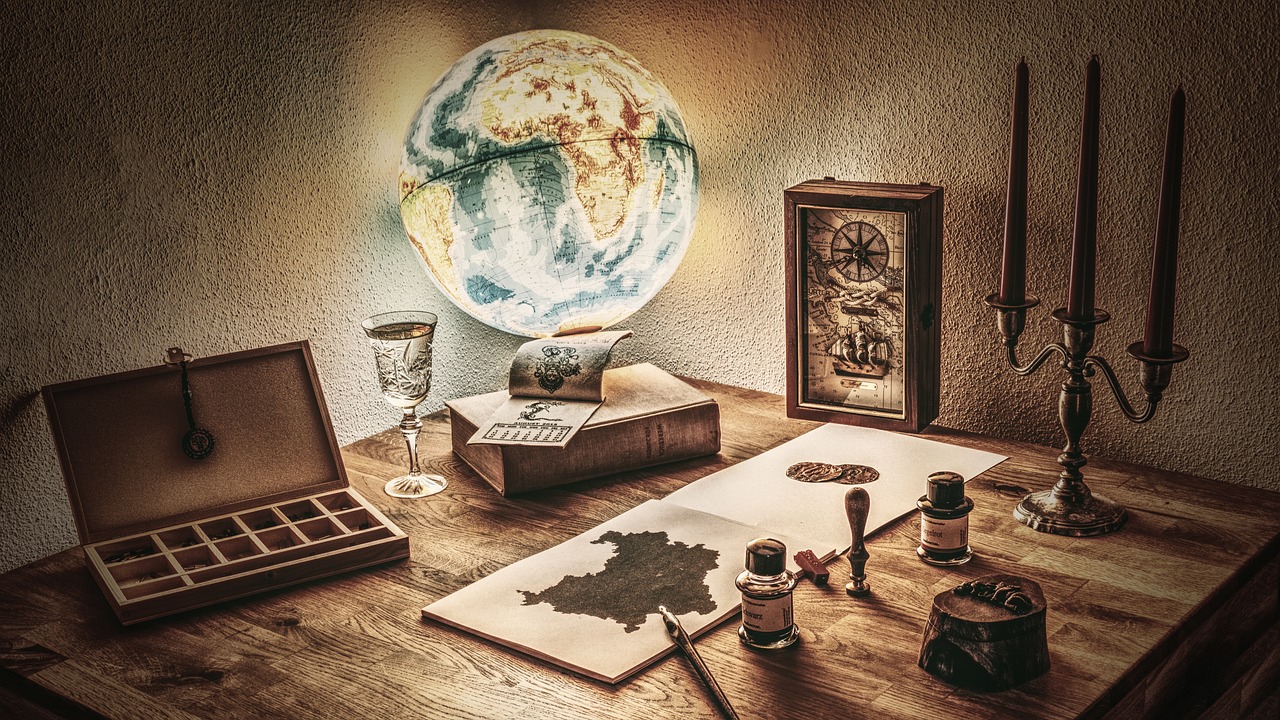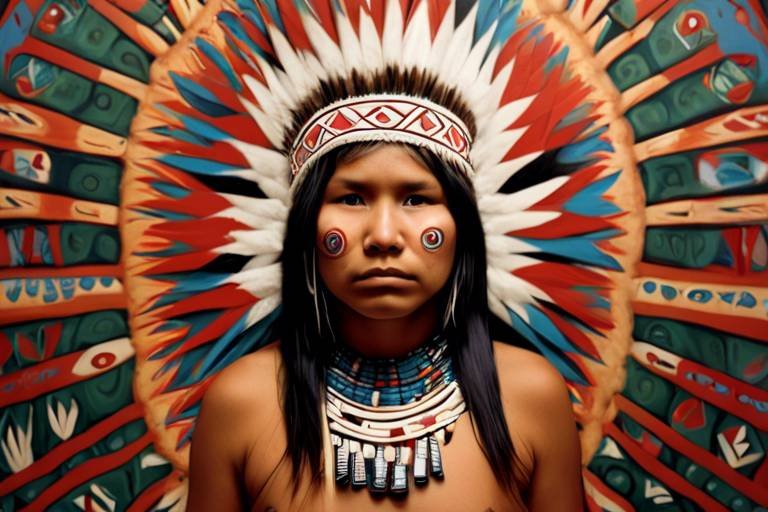The Evolution of the Novel - A Cultural Perspective
The evolution of the novel from its humble origins to its current status as a cultural cornerstone is a fascinating journey that intertwines with the tapestry of human history. The novel, as a literary form, has undergone significant transformations over the centuries, reflecting the changing landscapes of society and culture.
Originating from ancient storytelling traditions, the novel has evolved into a powerful medium for expressing complex narratives and exploring the depths of human experience. Across different cultures, the novel has taken on various forms, adapting to the unique perspectives and storytelling styles of each society.
As a reflection of society, novels have served as mirrors that capture the essence of societal norms, values, and conflicts. Through the lens of fiction, authors have been able to delve into the intricacies of human relationships, societal structures, and moral dilemmas, offering readers a glimpse into the inner workings of the human psyche.
Technological advancements have played a crucial role in the dissemination and consumption of novels. From the invention of the printing press to the rise of digital publishing and e-books, technology has revolutionized the way novels are produced, distributed, and consumed, making literature more accessible to a global audience.
The process of globalization has further enriched the world of novels by facilitating the exchange of diverse literary traditions. This has led to the emergence of multicultural narratives that offer readers a window into different cultures, perspectives, and experiences, fostering a greater sense of empathy and understanding.
Genre evolution in novels has been shaped by cultural preferences and trends, influencing the popularity of specific types of stories. From romance to mystery, science fiction to historical fiction, the novel has adapted to cater to the changing tastes of readers, reflecting the cultural zeitgeist of each era.
Novels have also been powerful tools for political and social commentary, capturing the spirit of various movements throughout history. From the protest novels of the civil rights era to the dystopian visions of the future, authors have used their craft to engage with pressing issues and provoke thought and action.
Exploring themes of gender and identity, novels have provided a platform for marginalized voices to be heard and represented. By examining the complexities of gender roles, identities, and societal expectations, authors have challenged cultural norms and expanded the boundaries of representation within the literary landscape.
Postcolonial narratives in novels have played a crucial role in challenging colonial legacies, reclaiming indigenous voices, and contributing to the process of decolonization. By centering the experiences of marginalized communities and highlighting the impact of colonialism, these novels have reshaped cultural narratives and promoted a more inclusive and diverse literary landscape.
Looking towards the future, novel writing continues to evolve, embracing digital storytelling formats and innovative techniques to engage with readers in new ways. As technology advances and cultural landscapes shift, the novel remains a dynamic and vital form of cultural expression, shaping the discourse of society and offering a window into the complexities of the human experience.

The Origins of the Novel
The origins of the novel can be traced back to ancient storytelling traditions that existed long before the written word. These early narratives were often passed down orally from generation to generation, evolving with each retelling. As societies began to develop writing systems, these stories were recorded on various mediums, such as clay tablets, papyrus scrolls, and parchment manuscripts. The transition from oral to written storytelling marked the beginning of the novel as a distinct literary form.
Across different cultures and time periods, the novel emerged as a way to explore complex narratives, characters, and themes in a more structured and cohesive manner. In ancient Greece, works like Homer's "Odyssey" and "Iliad" laid the foundation for epic storytelling, while in medieval Europe, chivalric romances and allegorical tales captivated audiences with their fantastical elements.
The novel as we know it today began to take shape during the Renaissance and Enlightenment periods, with authors like Cervantes, Defoe, and Richardson pioneering the form. These early novels often focused on individual experiences, moral dilemmas, and social commentary, reflecting the changing values and beliefs of their respective societies.
As the novel continued to evolve, it became a powerful tool for exploring the human condition, delving into the depths of emotions, relationships, and societal structures. From the Gothic horrors of Mary Shelley's "Frankenstein" to the social critiques of Charles Dickens' works, novels have served as windows into the complexities of human existence.
Throughout history, the novel has adapted and transformed in response to cultural shifts, technological advancements, and changing reader preferences. Its roots in ancient storytelling traditions have imbued it with a sense of timelessness and universality, allowing it to transcend boundaries of language, geography, and time.

The Novel as a Reflection of Society
Topics to be discussed in the article include the historical development of the novel, its impact on society, and how cultural influences have shaped the evolution of this literary form.
The novel, as a reflection of society, acts as a mirror that captures the essence of human experience and societal dynamics. Through vivid narratives and intricate plots, novels offer readers a glimpse into the complexities of human relationships, societal norms, and cultural values.
One of the remarkable aspects of novels is their ability to depict the intricacies of human emotions and interactions, presenting a rich tapestry of characters that embody various facets of society. Whether it's a coming-of-age story set in a small town or a political thriller unfolding in a bustling metropolis, novels have the power to evoke empathy, provoke introspection, and challenge conventional thinking.
Moreover, novels often explore controversial or taboo subjects, pushing the boundaries of societal discourse and shedding light on issues that are often overlooked or marginalized. By delving into themes such as class struggles, gender inequality, racial discrimination, and political corruption, novels confront readers with uncomfortable truths and compel them to confront the realities of the world they inhabit.
Through the lens of fiction, authors navigate the complexities of society, offering nuanced perspectives on cultural practices, moral dilemmas, and ethical quandaries. By weaving together narratives that resonate with readers on a personal level, novels have the power to shape collective consciousness, challenge prevailing ideologies, and inspire social change.

Technological Advances and the Novel
Topics to be discussed in the article include the historical development of the novel, its impact on society, and how cultural influences have shaped the evolution of this literary form.
Exploring the roots of the novel in ancient storytelling traditions and its transformation into a distinct literary genre in different cultures around the world.
Analyzing how novels serve as mirrors to societal norms, values, and conflicts, and how they have influenced cultural perceptions and ideologies.
Examining the impact of technological advancements such as the printing press, digital publishing, and e-books on the dissemination and consumption of novels.
Discussing how globalization has facilitated the exchange of diverse literary traditions, leading to the emergence of multicultural narratives in the novel.
Exploring the evolution of novel genres over time and how cultural preferences and trends have influenced the popularity of specific types of novels.
Investigating how novels have been used as tools for political and social commentary, reflecting and shaping cultural movements throughout history.
Examining the portrayal of gender roles, identities, and marginalized voices in novels, and how cultural perspectives have influenced these representations.
Exploring how postcolonial novels challenge colonial legacies, reclaim indigenous narratives, and contribute to the process of decolonization in cultural contexts.
Looking ahead to the future of the novel as a cultural artifact, considering emerging trends, digital storytelling formats, and the evolving role of novels in shaping cultural discourse.
Technological advancements have significantly transformed the landscape of novel writing and reading. The invention of the printing press revolutionized the dissemination of novels, making them more accessible to a wider audience. With the digital age, the rise of digital publishing and e-books has further revolutionized the way novels are produced and consumed.

Globalization and Diverse Narratives
Globalization has played a pivotal role in reshaping the landscape of novelistic narratives, ushering in an era of diverse storytelling traditions from around the world. As borders blur and cultures intermingle, the exchange of literary influences has enriched the novel with a tapestry of voices and perspectives. This cultural cross-pollination has given rise to a new wave of multicultural narratives that challenge conventional norms and offer fresh insights into the human experience.
Within this globalized literary ecosystem, authors draw inspiration from a myriad of cultural sources, infusing their works with unique flavors and nuances that reflect the rich tapestry of global heritage. Readers are no longer confined to familiar settings and characters but are invited to embark on literary journeys that traverse continents, languages, and traditions. The globalization of narratives has not only broadened the scope of storytelling but has also fostered a deeper understanding and appreciation of diverse cultures and perspectives.
Moreover, the digital age has further accelerated the dissemination of diverse narratives, breaking down geographical barriers and enabling stories to reach audiences across the globe with just a click. E-books and online platforms have democratized access to literature, allowing marginalized voices and underrepresented stories to find a global audience. This democratization of storytelling has paved the way for a more inclusive and interconnected literary landscape, where diverse narratives can thrive and resonate with readers from different cultural backgrounds.
As the world continues to shrink in the digital era, the novel stands as a testament to the power of storytelling in bridging cultural divides and fostering empathy and understanding across diverse communities. Globalization has not only expanded the horizons of the novel but has also enriched it with a mosaic of voices that collectively contribute to the ever-evolving tapestry of human experience.

Genre Evolution and Cultural Preferences
Genre evolution in the realm of novels is a fascinating journey that intertwines with cultural preferences, shaping the literary landscape over centuries. As societies evolved, so did the genres of novels, reflecting the changing tastes and interests of readers. From the epic tales of ancient civilizations to the modern-day psychological thrillers, each genre has its own unique appeal that resonates with different cultural contexts.
One significant aspect of genre evolution is the fusion and cross-pollination of different literary traditions, resulting in the emergence of new genres that cater to diverse cultural sensibilities. For example, the blending of mystery and historical fiction in novels like "The Da Vinci Code" by Dan Brown showcases how cultural preferences can drive innovative storytelling that captivates audiences worldwide.
Moreover, cultural preferences play a pivotal role in determining the popularity of certain genres at different points in history. For instance, during times of social upheaval, dystopian novels often gain prominence as they reflect the anxieties and uncertainties prevalent in society. On the other hand, romantic novels flourish in periods of stability, offering readers an escape into idealized worlds of love and passion.
Understanding the evolution of genres in novels requires delving into the intricate relationship between cultural influences and literary expression. As cultures evolve and diversify, so do the narratives that capture the essence of human experience, reflecting the ever-changing tapestry of societal values and preferences.

Political and Social Movements in Novels
Political and Social Movements in novels have played a significant role in shaping cultural perspectives and influencing societal change throughout history. Novels have often served as powerful tools for authors to comment on political issues, advocate for social justice, and challenge prevailing ideologies.
By delving into the complexities of political and social movements, novels have provided a platform for marginalized voices to be heard and for critical discussions on power dynamics, inequality, and human rights. Authors have used their storytelling skills to shine a light on pressing social issues and to inspire readers to reflect on the world around them.
Through the lens of fiction, authors have addressed a wide range of political and social movements, from revolutions and resistance against oppressive regimes to civil rights movements and feminist activism. Novels have the unique ability to humanize historical events and bring a personal dimension to complex social issues, allowing readers to empathize with characters and their struggles.
Moreover, novels have often served as a reflection of the zeitgeist, capturing the spirit of different historical periods and offering insights into the cultural and political climate of the time. By exploring themes of power, justice, and societal transformation, authors have contributed to the ongoing dialogue on political and social change.
Overall, the intersection of political and social movements in novels highlights the enduring relevance of literature as a medium for exploring the complexities of the human experience and as a catalyst for fostering empathy, understanding, and dialogue in society.

Gender and Identity in Novelistic Discourse
Gender and identity play crucial roles in shaping novelistic discourse, influencing both the characters within the narratives and the readers engaging with the stories. Novels have been instrumental in reflecting and challenging societal norms regarding gender roles and identities, offering a platform for marginalized voices to be heard and understood.
Through the portrayal of diverse characters and their experiences, novels have the power to evoke empathy, provoke introspection, and spark conversations about gender equality and identity acceptance. Authors often use their storytelling prowess to subvert traditional gender stereotypes, presenting complex and multifaceted characters that defy categorization.
Moreover, the representation of gender and identity in novels is deeply intertwined with cultural perspectives and historical contexts. Writers draw inspiration from their own experiences and observations, infusing their narratives with authenticity and depth that resonates with readers across different backgrounds.
Exploring the themes of gender and identity in novelistic discourse allows readers to confront their own biases, broaden their understanding of human diversity, and appreciate the richness of individual experiences. By delving into the complexities of gender dynamics and identity formation, novels serve as a mirror reflecting the intricacies of the human condition.

Postcolonial Narratives and Decolonization
Postcolonial narratives in novels play a pivotal role in challenging the enduring legacies of colonialism and imperialism. These narratives delve into the complexities of postcolonial societies, shedding light on the experiences of marginalized communities and reimagining historical events from diverse perspectives. By reclaiming indigenous voices and histories, postcolonial novels contribute to the process of decolonization, which involves dismantling entrenched power structures and promoting cultural autonomy.
Decolonization, both as a historical process and a literary theme, seeks to dismantle colonial ideologies and systems of oppression. Postcolonial narratives often confront the trauma and injustices inflicted during the colonial era, offering a platform for marginalized voices to articulate their struggles and aspirations. Through storytelling, these novels challenge dominant narratives, disrupt Eurocentric perspectives, and advocate for social justice and cultural sovereignty.
Furthermore, postcolonial novels highlight the complexities of identity, belonging, and cultural hybridity in the aftermath of colonial rule. They explore the intersections of race, ethnicity, class, and gender, portraying the intricate dynamics of power and resistance in postcolonial societies. By interrogating the impact of colonialism on individual and collective identities, these narratives navigate the complexities of cultural exchange, adaptation, and transformation in a globalized world.
Decolonization in literature involves not only critiquing colonial power structures but also envisioning alternative futures based on principles of equity, solidarity, and mutual respect. Postcolonial novels serve as sites of resistance and resilience, offering readers new ways of understanding history, culture, and social change. Through their narratives of struggle, survival, and liberation, these novels inspire critical reflection, empathy, and solidarity across diverse cultural contexts.
In conclusion, postcolonial narratives and the process of decolonization in novels are essential components of contemporary literary discourse. By amplifying marginalized voices, challenging dominant narratives, and envisioning alternative futures, these novels contribute to the ongoing project of cultural renewal, social justice, and global solidarity. Through their storytelling power, postcolonial novels invite readers to engage with complex histories, reimagine cultural identities, and participate in the transformative journey towards a more just and inclusive world.

Future Trends and Innovations in Novel Writing
As we look towards the future of novel writing, it is evident that the landscape of storytelling is undergoing significant transformations. With the rise of digital technologies and changing reader preferences, novelists are exploring innovative ways to engage audiences and push the boundaries of traditional storytelling.
One emerging trend in novel writing is the incorporation of interactive elements, blurring the lines between literature and other forms of media. Authors are experimenting with multimedia formats, incorporating audio, video, and interactive features to create immersive reading experiences that captivate readers in new ways.
Furthermore, the advent of artificial intelligence (AI) is revolutionizing the writing process, with some authors using AI tools to generate plot ideas, develop characters, and even co-write novels. This fusion of human creativity with machine intelligence is opening up new possibilities for storytelling and challenging conventional notions of authorship.
In addition, the digital age has brought about a democratization of publishing, allowing aspiring writers to self-publish their work online and reach global audiences without the need for traditional publishing houses. This shift towards self-publishing has enabled diverse voices to be heard and has fueled the creation of niche genres and subcultures within the literary world.
Looking ahead, the future of novel writing holds endless possibilities, from virtual reality storytelling experiences to collaborative writing platforms that connect authors and readers in real-time. As technology continues to advance and cultural landscapes evolve, the novel remains a dynamic and ever-evolving art form that reflects the complexities of human experience in a rapidly changing world.
Frequently Asked Questions
- What is the significance of the novel in cultural evolution?
The novel plays a crucial role in cultural evolution by reflecting societal values, norms, and conflicts. It serves as a mirror to the human experience, offering insights into different perspectives and shaping cultural ideologies.
- How have technological advancements impacted the dissemination of novels?
Technological advancements such as the printing press, digital publishing, and e-books have revolutionized the way novels are produced and consumed. They have made literature more accessible to a global audience, transforming the landscape of storytelling.
- Why are diverse narratives important in the evolution of the novel?
Diverse narratives in novels contribute to a richer and more inclusive literary landscape. Globalization has enabled the exchange of diverse cultural traditions, leading to the emergence of multicultural voices in the novel, enriching storytelling and broadening perspectives.
- How do novels reflect and influence political and social movements?
Novels have been powerful tools for political and social commentary, reflecting the zeitgeist of their time and influencing cultural movements. They have the ability to challenge societal norms, provoke thought, and inspire change through storytelling.
- What role do novels play in challenging gender roles and identities?
Novels often explore and challenge traditional gender roles, identities, and marginalized voices. They provide a platform for diverse representations, enabling readers to engage with different perspectives and prompting conversations about gender equality and identity.
- How do postcolonial narratives contribute to the decolonization process?
Postcolonial narratives in novels confront colonial legacies, reclaim indigenous voices, and contribute to the ongoing process of decolonization. They offer alternative perspectives on history, challenge dominant narratives, and empower marginalized communities.
- What can we expect in the future of novel writing?
The future of novel writing is marked by emerging trends, digital storytelling formats, and evolving cultural discourses. As technology continues to advance, novels will adapt to new mediums, exploring innovative ways to engage readers and shape cultural conversations.



















